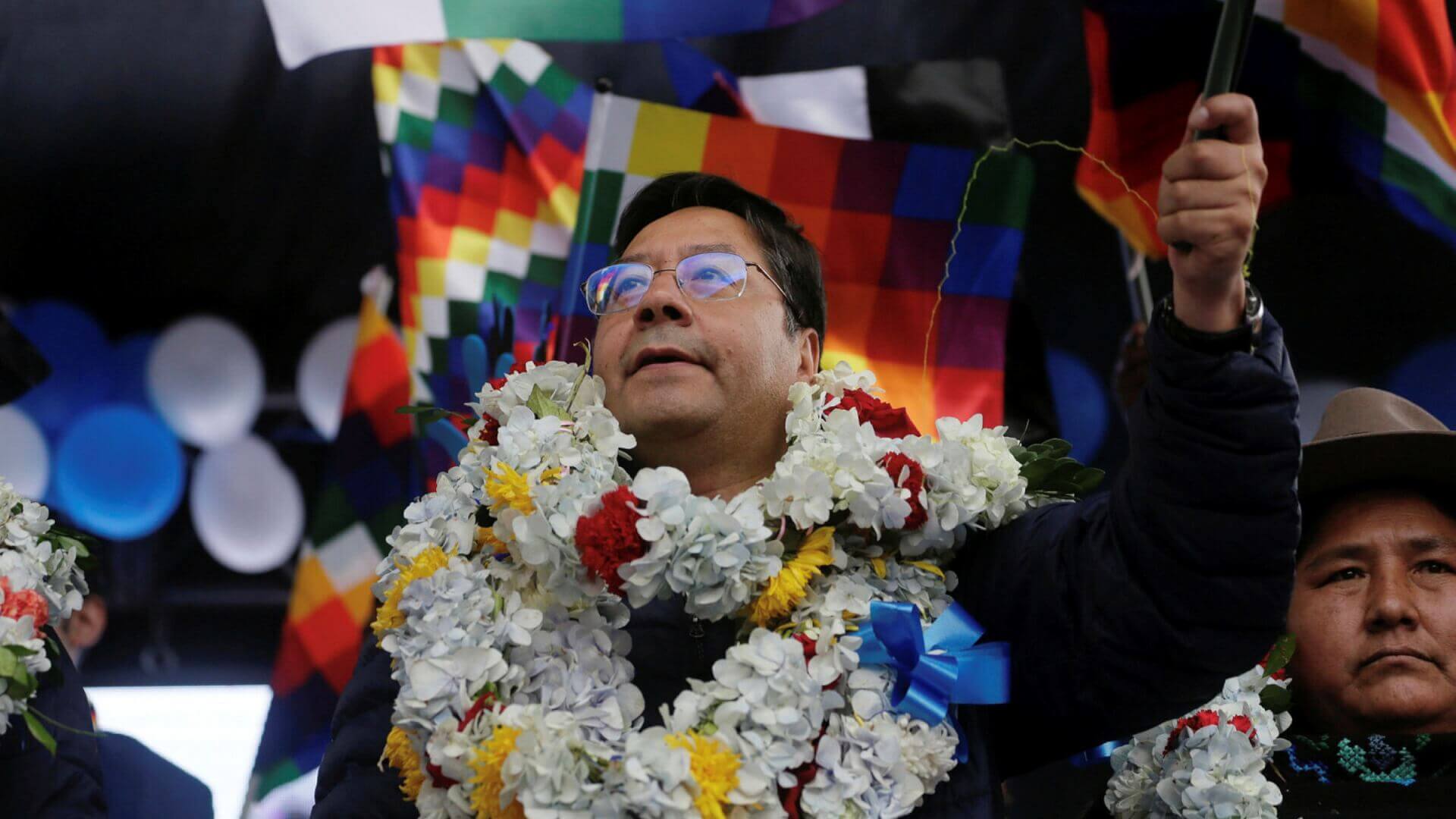Although Bolivia’s new president, Luis Arce, said that there would be “no role” for ousted former leader Evo Morales in his administration, Arce has already begun to re-institute some of the left-leaning tendencies that were prevalent under Morales’ rule.
Although the official count is still ongoing, Luis Arce has claimed victory, with the now-former president Jeanine Áñez congratulating him his victory and leading opposition candidate Carlos Mesa conceding defeat.
Morales led the nation from 2006 to 2019 and won three consecutive elections and ran for a fourth term in October 2019 prior to his resignation in November. This was in contravention of the three-term limit, a law that was reinforced by the fact that citizens voted against a constitutional amendment that would remove this limit in 2016.
Nevertheless, he contested the election, and was declared the winner. However, several irregularities prompted suggestions of vote-rigging, resulting in widespread protests, ultimately leading to his resignation on November 10 under military and public pressure.
After he stepped down, Senator Jeanine Áñez, leading a coalition of the Democrat Social Movement party and four other parties, assumed the interim presidency. During her time in office, she has attempted to undo some of Morales’ leftist influence on the country’s policies and its foreign relations.
When it became clear that Arce would be proclaimed the victor of the election, Morales, who is currently living in exile in Argentina, declared that he will return to Bolivia “sooner or later”. He also expressed his gratitude for the support of Mexico, Argentina, Venezuela, and Cuba during “these months of democratic absence in the country”.
However, while Morales remains the president of the now ruling Movement Toward Socialism (MAS) party, Arce noted that he “will not have any role in our government”. He remarked, “[Morales] can return to the country whenever he wants, because he’s Bolivian ... but in the government it's me who has to decide who forms a part of the administration and who does not.”
Arce’s popularity s derived from his tenure as former president Evo Morales’ economy minister, when he oversaw considerable growth and poverty reduction. However, he walks into a drastically different economy now, particularly in light of the coronavirus pandemic, which has reduced the prices of Bolivia’s mineral exports, decreased wages across the country, and sent many into unemployment.
In line with this new reality, Arce has already begun setting the wheels in motion for an economic recovery. He said that he would issue bonds “if necessary”, even though he had earlier criticized the Áñez administration for issuing debt.
He is also looking to take advantage of Bolivia’s rich lithium reserves, which he sees playing a crucial role in the world’s shift towards electric cars and other battery-operated products. His administration contends that this could yield over $2 billion in revenue over five years.
Arce is, however, wary of changing too much too soon and has already said that he has no plans to change the value of the boliviano, the country’s currency, which is pegged against the US dollar.
Following the interim right-wing presidency of Áñez, Bolivia now appears to be making another marked shift to the left. In fact, the right-wing coup that led to Morales’ ouster is largely seen as an attempt by middle and upper-class White Bolivians to recapture the power they had lost to Indigenous communities.
Simultaneously, under Morales, Bolivia also distanced itself from the United States (US) and it was telling Morales publicly extended his gratitude to Mexico, Argentina, Venezuela, and Cuba for Arce’s electoral victory. Arce himself has already stated that he will look to restore strong diplomatic ties with Venezuela, Cuba, and Iran, denouncing the ‘ideological’ shift under Áñez. The new president was quick to thank Venezuelan President Nicolás Maduro for his congratulatory tweet on his “great victory”.
Muchas gracias presidente @NicolasMaduro. Con la sabiduría y confianza del pueblo hemos recuperado la democracia y la esperanza. La victoria es de todas y todos los bolivianos. #VamosASalirAdelante https://t.co/8faynBAggY
— Luis Arce Catacora (Lucho Arce) (@LuchoXBolivia) October 19, 2020
That being said, Arce has also struck a conciliatory note, indicating his desire to “re-establish relationships with all countries”. He said of Washington: “If they want to re-establish a relationship with us, the only thing we ask for is that we are respected as equals.

